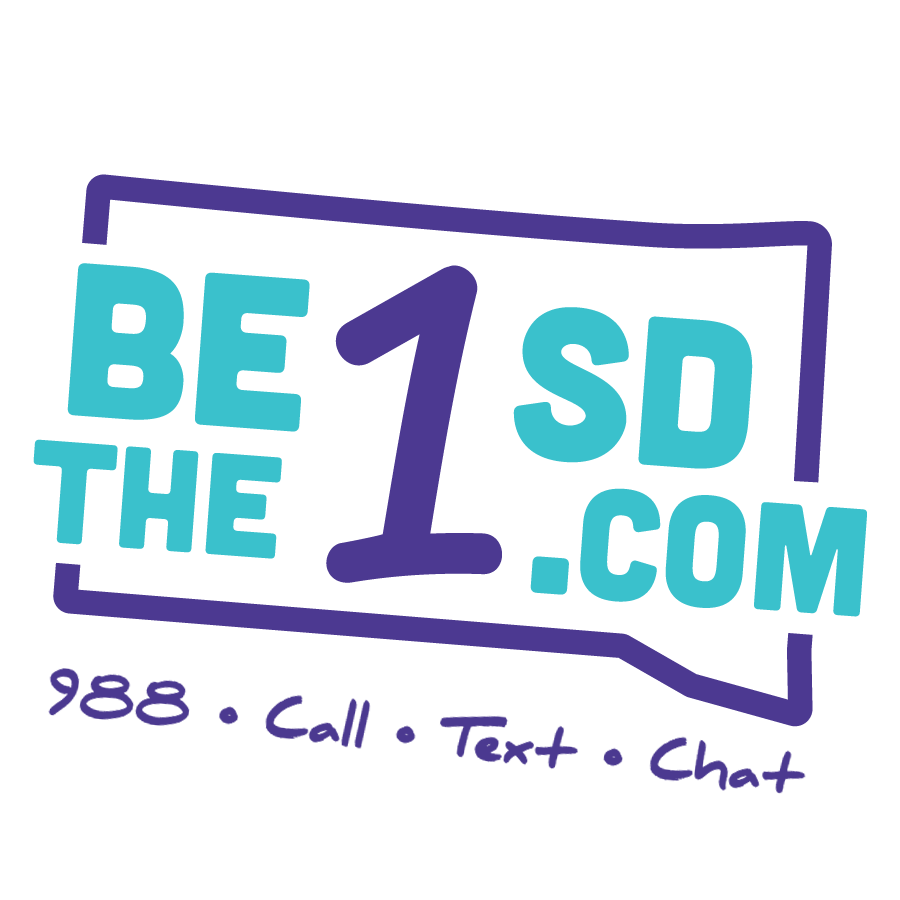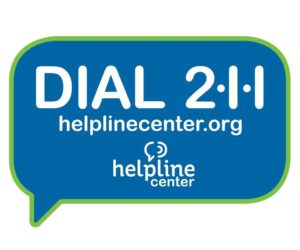Resources
The Suicide Prevention Resource Center has created the Best Practices Registry which is an online database that has lists of programs and interventions available that apply suicide prevention frameworks for specific populations and uses.
Behavioral Health Resources
Behavioral health is a key part of a person’s overall health. It is just as important as physical health and includes one’s emotional, psychological and social well-being. Behavioral health conditions include mental health, substance use and co-occurring disorders.
The South Dakota Department of Social Services, Division of Behavioral Health oversees the publicly funded prevention and treatment provider system in South Dakota. Click here to find behavioral health services nearest you, or visit SAMHSA’s Treatment Locator.
211
The 211 database is a central access point for information and referrals on nonprofit, social service and government agencies in South Dakota. The database contains over 10,000 social, governmental, non-profit and faith-based services available across South Dakota. When you dial 2-1-1, you talk to real people trained to help and connect you to the right resources, organizations, or people. 211 answers calls 24/7. Call 211 or text your five-digit zip code to 898211 to connect.
988
988 is the national three-digit number for all mental health, substance use, and suicide crises. 988 calls are routed to South Dakota’s only 988 Suicide and Crisis Lifeline center, the Helpline Center. The Helpline Center has trained crisis specialists available 24/7 via call, text or chat.
South Dakota Mental Health & Suicide Prevention Resources
With the help from partners the South Dakota Department of Health has developed the SD Mental Health & Suicide Prevention Resource Rack Card that list available resources in the state of South Dakota. Please help us share this available resource to youth, young adults, parents, and clients you service in your communities.
To order this FREE resource:
Suicide Prevention Apps
Traditional suicide prevention resources such as education, counseling and help lifelines are being amplified with mobile apps that expand the reach and try to save lives that might otherwise be lost. Suicide prevention apps aim to help those with suicidal thoughts, as well as friends, family, and loved ones looking to educate themselves and reach out to someone in need. Check out these apps in your app store today!
- Jason Foundation: A Friend Asks: A Friend Asks is a free app by the suicide prevention group Jason Foundation. It aims to teach its users how to recognize the signs that someone close to them may be thinking about suicide, and how to reach out to them proactively. The app provides users with a list of common warning signs of suicide ideation, do’s and don’ts for such a sensitive situation and easy access to resources such as the National Suicide Prevention Lifeline.
- MY3: While “A Friend Asks” focuses on training users to recognize the signs of suicide ideation in others, MY3 is targeted squarely at those who are depressed or suicidal themselves. MY3 aims to keep you connected to your core network, asking you to choose three close contacts, such as friends, family, loved ones or your therapist, that you feel comfortable reaching out to whenever you feel down. In addition, MY3 helps you build your own Safety Plan, asking you to think through and list your own warning signs, coping strategies and support network, so that you can easily act when you recognize your warning signs. In addition, the app includes a wealth of suicide prevention resources and contact information for the National Suicide Prevention Lifeline.
- Stay Alive: This is designed for people who have been thinking of committing suicide. It helps users to create a safety plan with action steps. Users identify people and places that calm them. It includes a “LifeBox” feature. Users can fill their box with inspirational quotes/pictures. They can also include breathing exercises and grounding techniques to reference as needed. There is also quite an extensive databank of knowledge for concerned friends and family members. They can use this help educate themselves and find resources.



